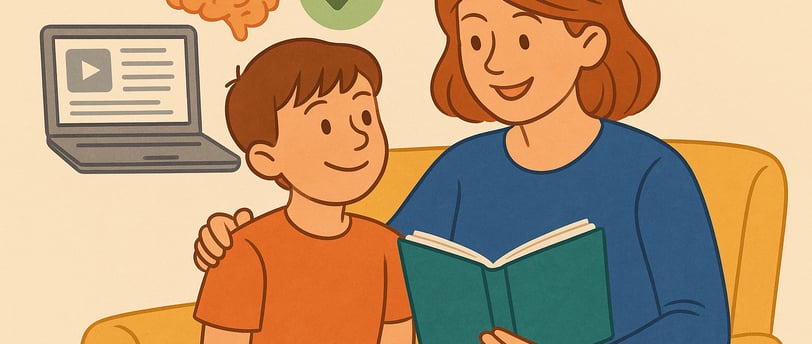Do You Believe in Parenting Myths? : Insights from Viral Content
JAPANESE SMART LEARNING
6/7/20252 min read


Attractive Parenting Video Contents
In today's digital age, parents are bombarded with a myriad of resources and content regarding parenting, including this site. Among these, videos, particularly YouTube Shorts, have gained immense popularity for their concise information. For busy parents, these short videos often seem like a quick solution to complex issues surrounding child-rearing. However, not everything in these videos is based on thorough research or evidence.
The Power and Pitfalls of Online Parenting Tips
Recently, I came across a YouTube Short titled “5 Features of a Parent Who Makes Children Have Bad Personality.” While the video was intriguing, I couldn’t help questioning the validity of such sweeping claims. Upon reflection, I realized that my own parents displayed three of the traits mentioned—yet I don’t see myself reflected in the negative personalities described.
The same goes for my friend Yoshiko, whose parents were both schoolteachers—a role labeled as the No. 5 “bad feature” in the video. The claim was: “Because they are rarely praised, children of teachers tend to develop lethargic personalities.” But that doesn’t align with her story at all. She was the leader of our elementary school class, later studied in Canada, and eventually married a prominent Canadian artist. I attended one of his exhibitions in Tokyo—an amazing event she organized. Every time I see her, she’s radiant—smiling, accomplished, and clearly fulfilled.
This makes me question how accurate or helpful many of these online parenting posts truly are.
Tune In to Yourself, Tune Out the Hype
It's worthwhile for parents to remain discerning about the information they consume. While the video I referenced was created by a Japanese acupuncturist with national qualifications, it still lacked the nuance necessary for accurate parenting advice. Even the observational experiences shared by professionals—like acupuncturists or osteopaths—can offer insights that aren’t 100% backed by statistics. Believing every viral sensation can lead to misconceptions about effective parenting strategies.
These days, many content creators make videos by stitching together information from multiple viral clips—often using AI. The result can look more fascinating than the calm, credible advice shared by professionals. That’s why it’s so important to be mindful of where the information comes from.
As you navigate the endless sea of parenting advice out there, don’t forget to trust your instincts. No two families are the same, and what works for one might not work for another. It’s okay to take in expert advice—just make sure it feels right for you and your child. Blending trustworthy insights with your own intuition can help you find a parenting style that truly fits your life.
Inspiration
Discover beauty and creativity through kaizen. 【YouTube Channel】Japanese Parenting Victory
Harmony of the globe
RhYthm of the universe
© 2025. All rights reserved.
